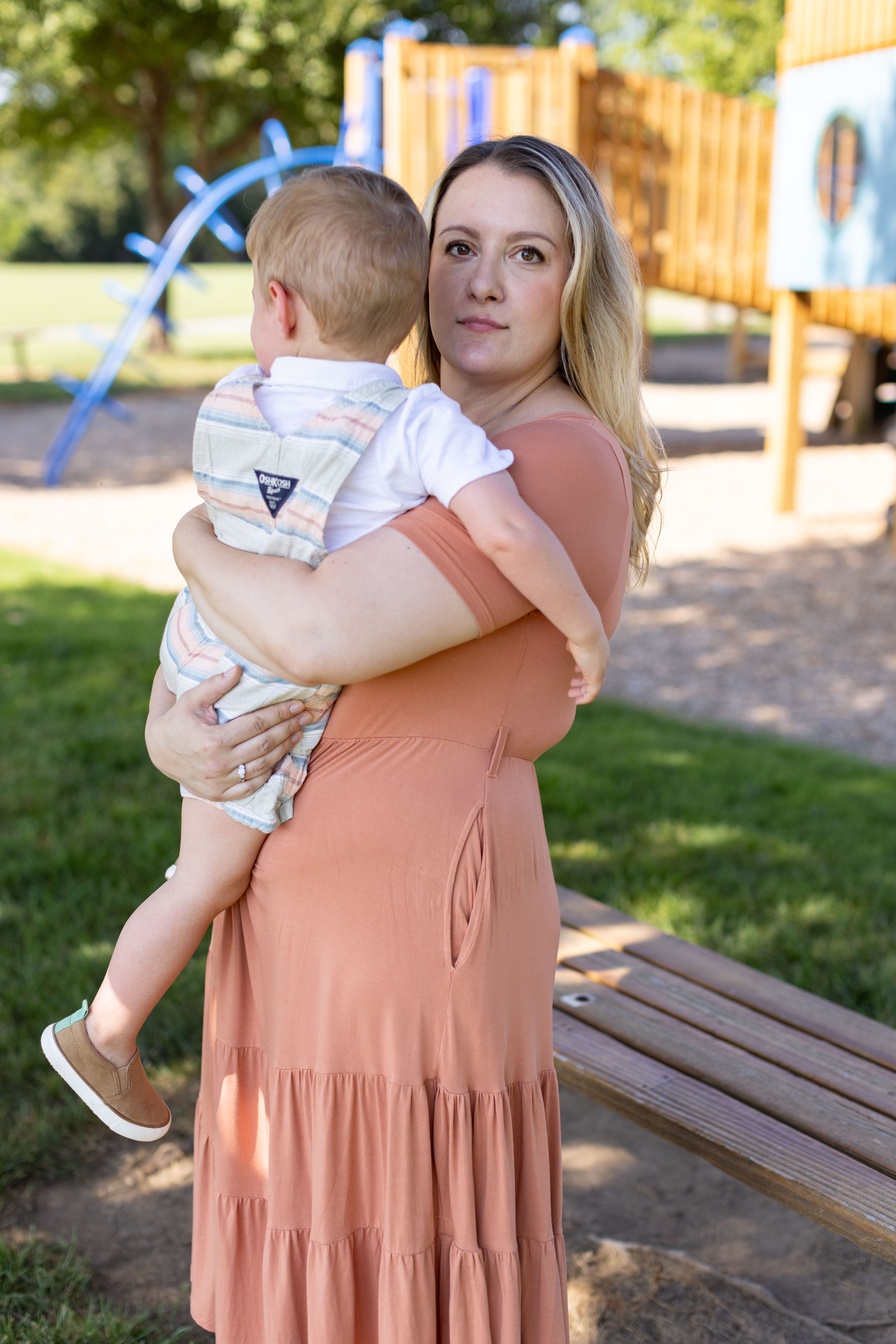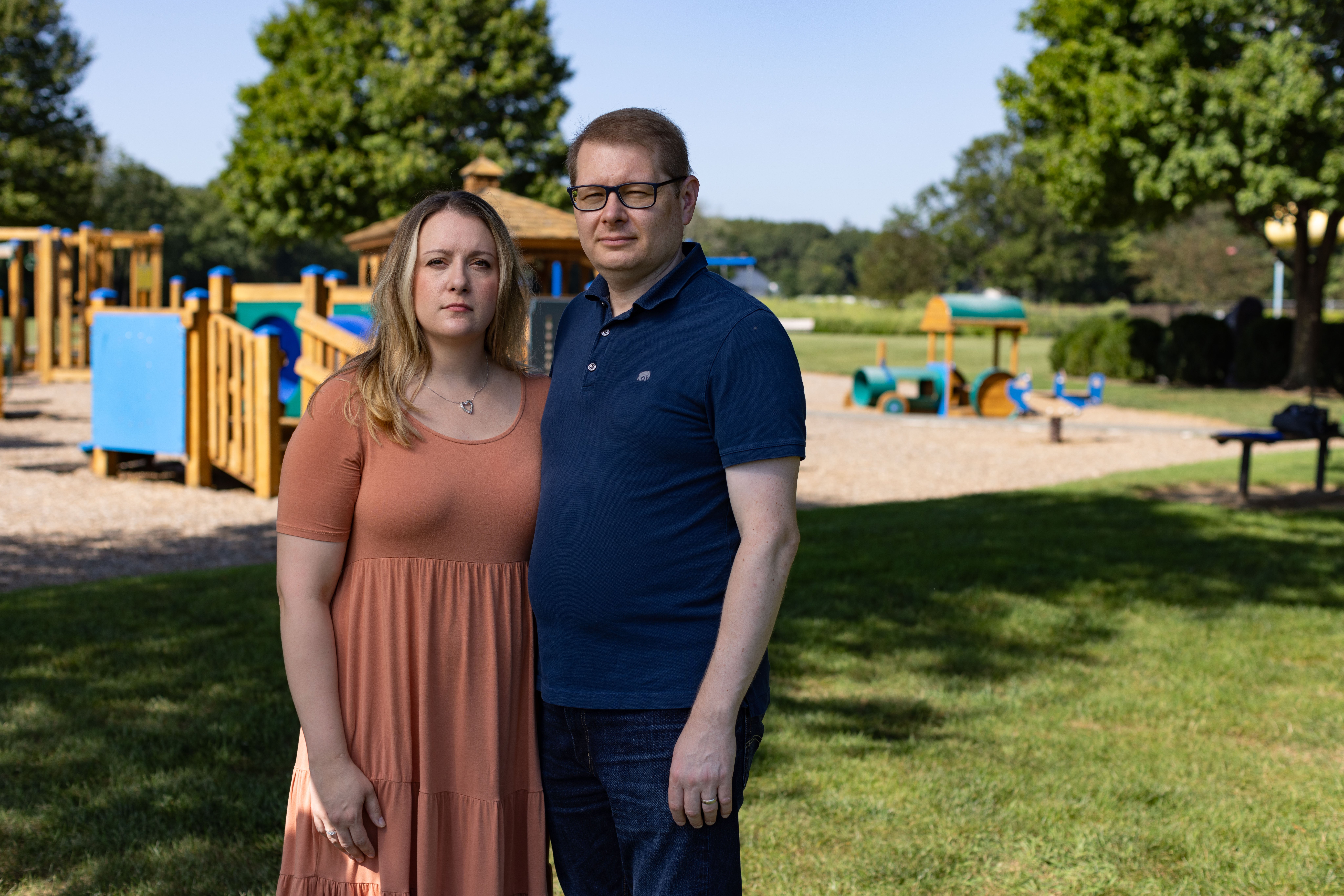New Jersey accused of secretly storing baby blood in ‘creepy database’
Blood samples from babies have allegedly been stored for up to 23 years – with parents claiming they had no idea
A group of parents have accused the state of New Jersey of “secretly retaining” their newborn babies’ blood in a “creepy database” without their consent.
In a news release, the non-profit, public interest law firm the Institute for Justice revealed that a class-action federal lawsuit has been filed challenging the state’s alleged practice of keeping newborns’ blood samples in New Jersey for up to 23 years.
The lawsuit names two people from the New Jersey Department of Health and one person from the Division of Family Health Services as defendants.
New Jersey law states that all newborns must submit a blood sample to be tested for diseases such as cystic fibrosis, hormonal deficiencies and immunity problems. All US states have similar laws around such tests.
Under this law, the baby’s heel is pricked and blood collected on a card.
But, the group of parents is now accusing the state of keeping these samples and allowing other parties, such as law enforcement, to use them.
Mother-of-two Hannah Lovaglio said in an Institute for Justice video that knowing her baby’s blood had been kept was “unsettling”.
“It’s not right that the state can enter an incredibly intimate moment, the tender days of childbirth, and take something from our children which is then held on to for 23 years,” said Ms Lovaglio in the release.

“The lack of consent and transparency causes me to question the intent and makes me worried for my children’s future selves.”
The law firm is arguing that the state does not ask for parents’ consent to keep the babies’ blood samples, nor does it inform them that they will keep the blood.
Alongside Ms Lovaglio, Erica and Jeremiah Jedynak are listed as plaintiffs.
Echoing what Ms Lovaglio said, Ms Jedynak noted that she did not receive any explanation from the hospital and did not consent that her baby’s blood would be allegedly stored for 23 years.
The mother said in the video that she believes the storage feels like a “very creepy database by the state of New Jersey”.

Ms Jedynak tried to opt out of the screening, but a nurse allegedly told her the samples were mandatory, she told Fox News.
The mother was recovering from 26 hours in the hospital and an emergency caesarean section; she said she was too tired to argue.
According to the law firm, the only way parents would know about the retention of the blood samples was by looking it up on one of the third-party websites listed on the bottom of a card they were given after the blood samples were taken.
The database has already been used by law enforcement without a warrant, said Paul Sherman, a senior attorney at the Institute for Justice.
“There are no laws prohibiting the state from selling the blood to private third parties, giving it to law enforcement or whatever else someone can come up with 23 years from now,” Mr Sherman claimed.
This alleged use of the samples came to light in 2022 when the Office of the Public Defender found out that New Jersey State Police had used the blood spot of a child, now 10 years old, to link his father to a 1996 sexual assault crime, according to The New Jersey Monitor.

No probable cause or a warrant was reportedly used, the outlet reported, and a judge later ordered state health officials to reveal what police agencies were using the baby blood samples and when.
Mr Sherman said that other states including Texas, Michigan, and Minnesota have also come under fire for allegedly selling children’s blood databases, with Texas officials accused of giving samples to the Pentagon.
Institute for Justice attorney Rob Frommer said in a statement that the storage and use of baby blood samples is a “clear violation of the Fourth Amendment rights of all New Jersey parents and their newborns”.
The Fourth Amendment of the US Constitution states that people have the right to be “secure in their persons, houses, papers, and effects, against unreasonable searches and seizures, shall not be violated, and no warrants shall issue” unless there is probable cause or it is supported by oath or affirmation.
In a statement to The Independent, Institute for Justice attorney Brian Morris said, “The Fourth Amendment protects the right of people, including babies, to be secure in their persons. And for parents, there’s nothing more important than protecting your kids. That’s what makes New Jersey’s secret stockpiling of baby blood so concerning. Without constitutional limits, the state can do whatever it wants with the blood—such as selling it to third parties or even using it against children in the future—and there’s nothing parents can do about it. We filed this lawsuit to protect New Jersey families.”
The lawsuit is seeking to ban the state from keeping any blood samples without consent.
The New Jersey Department of Health told The Independent that they do not comment on pending litigation.
Join our commenting forum
Join thought-provoking conversations, follow other Independent readers and see their replies
Comments
Bookmark popover
Removed from bookmarks